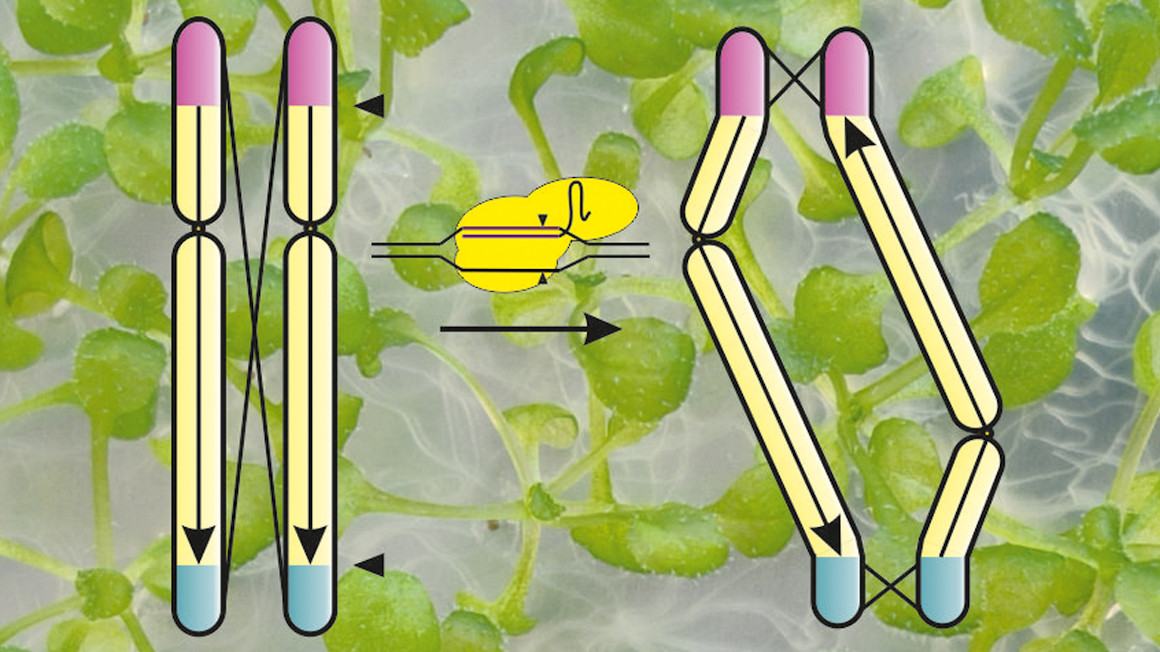Inheriting good plant traits only
Using the molecular gene scissors CRISPR/Cas, researchers have succeeded in silencing chromosomes and thus preventing genetic exchange.

For agriculture, it is important that crops are as high-yielding as possible and robust against diseases. Breeding aims to pass on useful properties of plants. But in plant breeding, these useful traits are often lost if the genes on the chromosomes are too far apart. Using the molecular gene scissors CRISPR-Cas, researchers can specifically modify or switch off genes.
Researchers at the Karlsruhe Institute of Technology (KIT) and the Leibniz Institute of Plant Genetics and Crop Plant Research (IPK) have now used this method to modify chromosomes in such a way that genetic exchange is prevented and genes are thus inherited together. "We silence almost a complete chromosome - make it virtually invisible - and can thus pass on all the traits that are on it in one package," explains molecular biologist Holger Puchta from the KIT Botanical Institute. Only the ends of the chromosome, the telomeres, remained in their original orientation.
Chromosomes made invisible
Until now, plant traits that were to be inherited together had to be close together on the same chromosome. As the team reports in the journal Nature Plants, nine-tenths of a chromosome of the model plant Arabidopsis thaliana was "flipped" using the molecular scissors CRISPR/Cas, thereby genetically silencing it. "Genes are arranged linearly on chromosomes, and by changing this sequence we were able to show how to separate good from bad plant traits," says Puchta.
Facilitate plant breeding
Efficient breeding of crops is about combining as many positive characteristics as possible in one plant. "Breeders naturally want the plant to taste good, to be as rich in vitamins as possible, but at the same time to be resistant to diseases. We can make that easier in the future with our method," says Puchta.
Inversion copied from nature
The genetic "inversion" of chromosomes is a natural process. Inversion or reversal also occurs repeatedly in nature in wild and cultivated plants. "We have learned from nature and used and expanded this knowledge of the natural process," says Puchta.
In 2020, a team led by the molecular biologist from Karlsruhe exchanged chromosome pieces with the gene scissors for the first time and took the use of the molecular precision tool to a new level.
gd/bb


